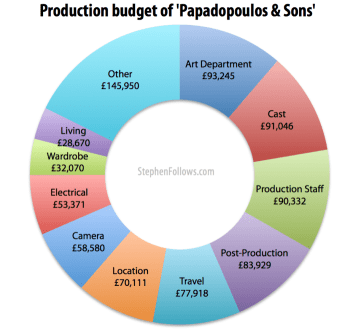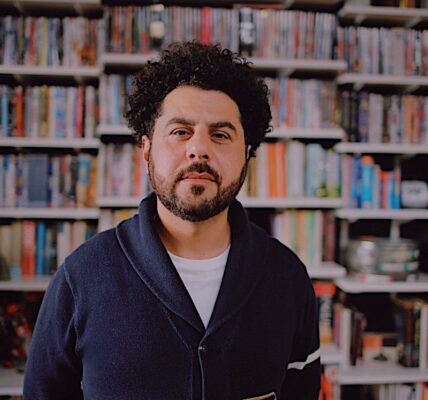The Great Gatsby
Screenwriting expert Danny Munso explains why more writers than ever are turning to adaptations, and how you can do your source novel justice.
If you are a regular reader of this space, then you have already heard my cries of anger about how difficult it is to get an original screenplay made in Hollywood. While it is frustrating to those of us who write scripts, it is nonetheless a stark reality of working in the modern industry. If you have an original idea, independent cinema is probably your best avenue for seeing it up on the big screen. For those of you who have studio-writing aspirations, you had better learn to adapt to your surroundings… and learn to write adaptations.
Almost anything can provide source material for a great adaptation: novels; short stories; comic books; plays; even great journalism. For those who are prepared to give adaptation a try, here are some tips to get you started.
Not Every Book Should Be Turned Into a Movie
Just because that bedside read that you finished in six days was a compelling read doesn’t mean you should immediately investigate obtaining the rights. The first question you should ask yourself after finishing a book that you loved isn’t ‘should this be written into a movie?’ It should be ‘am I the right person to turn this into a movie?’ Just like each original screenplay should be the singular vision of that author, so should an adaptation. Yes, you are going through someone else’s work. But if you don’t have a personal connection then you shouldn’t try and write it. It will come off as a hollow representation of the source material, a paint-by-numbers recreation of what was already on the page. If you are not going to bring something unique to the situation, you are better left sitting it out.
Something to pay attention to is the inner monologue of the novel’s protagonist. If the novel is told in first or third person, then either the author or the characters themselves are letting us know how they feel about things. This isn’t easily translatable to film. In a movie, we need to identify with the lead character immediately, without the benefit of pages of information we have in the novel.
One of my favourite novels is Cormac McCarthy’s The Road, and while the film version is very good it had no chance of ever truly capturing the stark brutality of the novel. McCarthy’s prose is told in first person by the father and we understand that character, and by extension the world he is trapped in, better than we ever could in the movie.
The Road is a worthy adaptation, but the book you want to adapt might not be so easy. You don’t want to use the crutch of voice-over for your entire movie—that hardly ever works. Your job is to express what the author is writing in a visual way. That could involve inventing new scenarios to help us better understand your lead character. It could mean additional, revealing dialogue not featured in the book. If you’re hitting roadblocks to a solution, it’s possible that book is better left on the shelf.
Think – and Look – Outside the Box
When someone thinks of a film adaptation, they immediately jump to films based on books. Clearly, novels are the most popular and accessible way to find a great story. But that avenue is becoming more closed off to amateur writers than ever before. Nowadays, when a great novel is published its film rights have often been sold before it ever hits bookshelves. So even if you find a book that you think would make a great film, it’s possible someone else already has the rights.
So where do you get your ideas from? The answer could be right under your nose. If I were to list the following films—Dog Day Afternoon; On the Waterfront; Adaptation; American Gangster; Urban Cowboy; and Saturday Night Fever—would you know what they have in common? They were all screenplays based on either newspaper or magazine articles. Journalism is increasingly becoming an avenue for screenwriters to discover new and exciting stories. With the rise of the Internet, there are more and more stories being told all over the world. While it may be an arduous search to find one that interests you, they are certainly out there.
Get Over the Greatness; Keep the Spirit
If you’re adapting something, chances are you love it. This is a dangerous feeling to have as a screenwriter. You have to get over how good the source material is. As the screenwriter, you are going to have to rip that world apart before putting it back together again. Some characters may need to be combined for the purposes of the script; others will be deleted altogether. Plot points that seem important in the source material may not make the final draft at all. What you are looking to do is keep the overall spirit of what you’re adapting. You are telling that story in a different way and placing the pieces in different places, but the feeling the audience gets from your movie should be the same one that got you excited about the material in the first place.
The most popular example of this is Peter Jackson’s Lord of the Rings trilogy and his upcoming film adaptations of The Hobbit. If any films ever represented the possibilities of adapting, it is those. Obviously, Jackson was working with a phenomenal story written by J.R.R. Tolkien, but he and his co-writers Fran Walsh and Philippa Boyens brought that world to life beyond Tolkien’s vision. Whether it was inventing new characters to fill thematic needs, turning a three-page battle scene into a 30-minute film epic (The Battle of Helm’s Deep) or lifting short passages from Tolkien’s appendices and transforming them into great love stories (as they did with Aragorn and Arwen), it is a masterclass in remaining faithful to the source material, yet exploring new and greater possibilities.
Similarly, the great Paul Thomas Anderson was excited about the possibilities held by the novel Oil! by Upton Sinclair upon completing it. As he sat down to adapt it as a writing exercise, he ended up finding a different story than the one told in Sinclair’s pages. Though his resulting screenplay, the brilliant There Will Be Blood, was clearly inspired by Sinclair’s work, it shared very little except the setting and a few character traits. His film’s legendary protagonist, Daniel Plainview (Daniel Day-Lewis), could be seen as a composite of a few characters from the novel, but it’s even closer to a completely original creation. Same with preacher Eli (Paul Dano), who is not in the book at all. Very little is. Anderson used Oil! as his jumping-off point to the story he wanted to tell. Don’t be afraid to do the same if inspired to do so.











